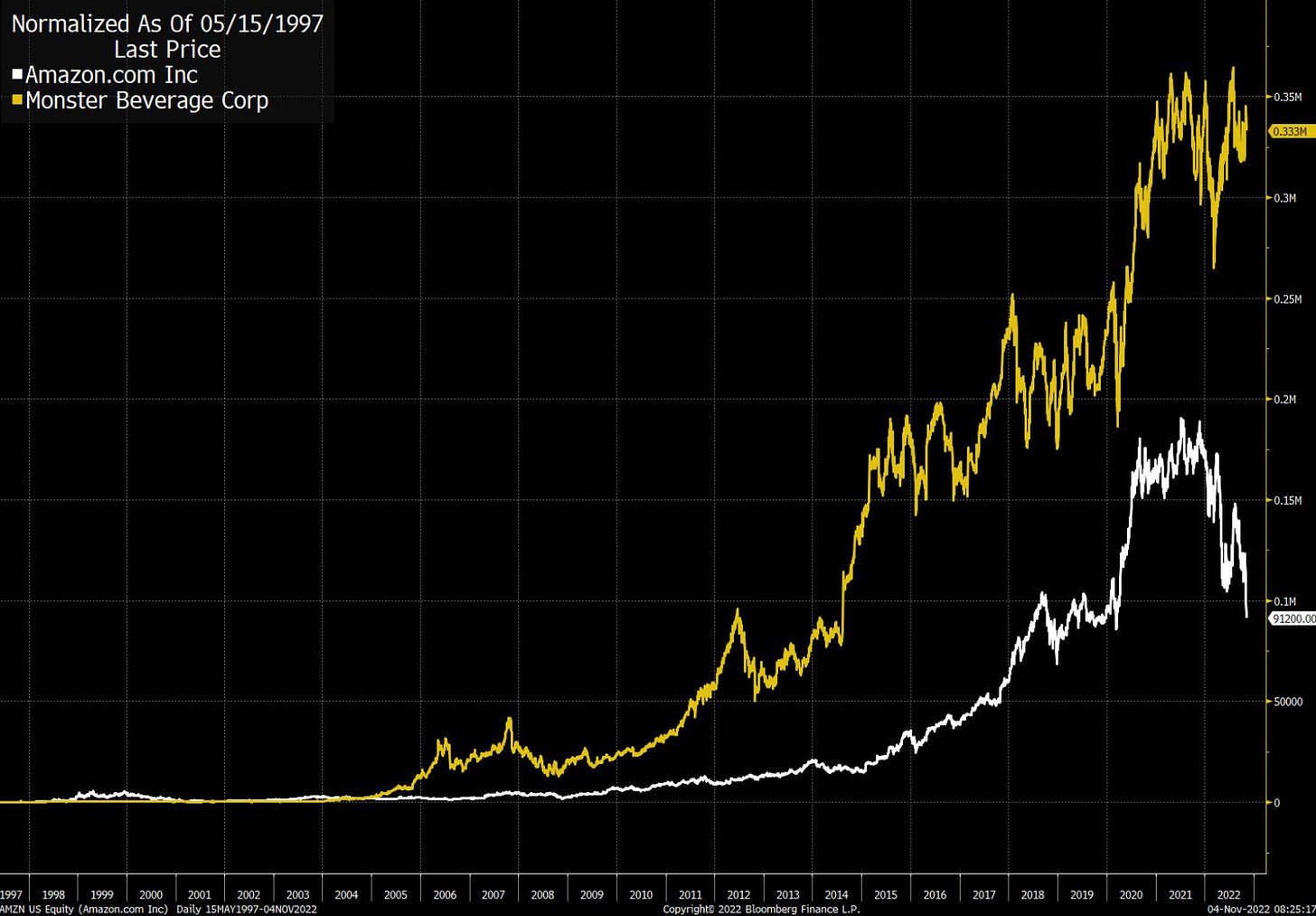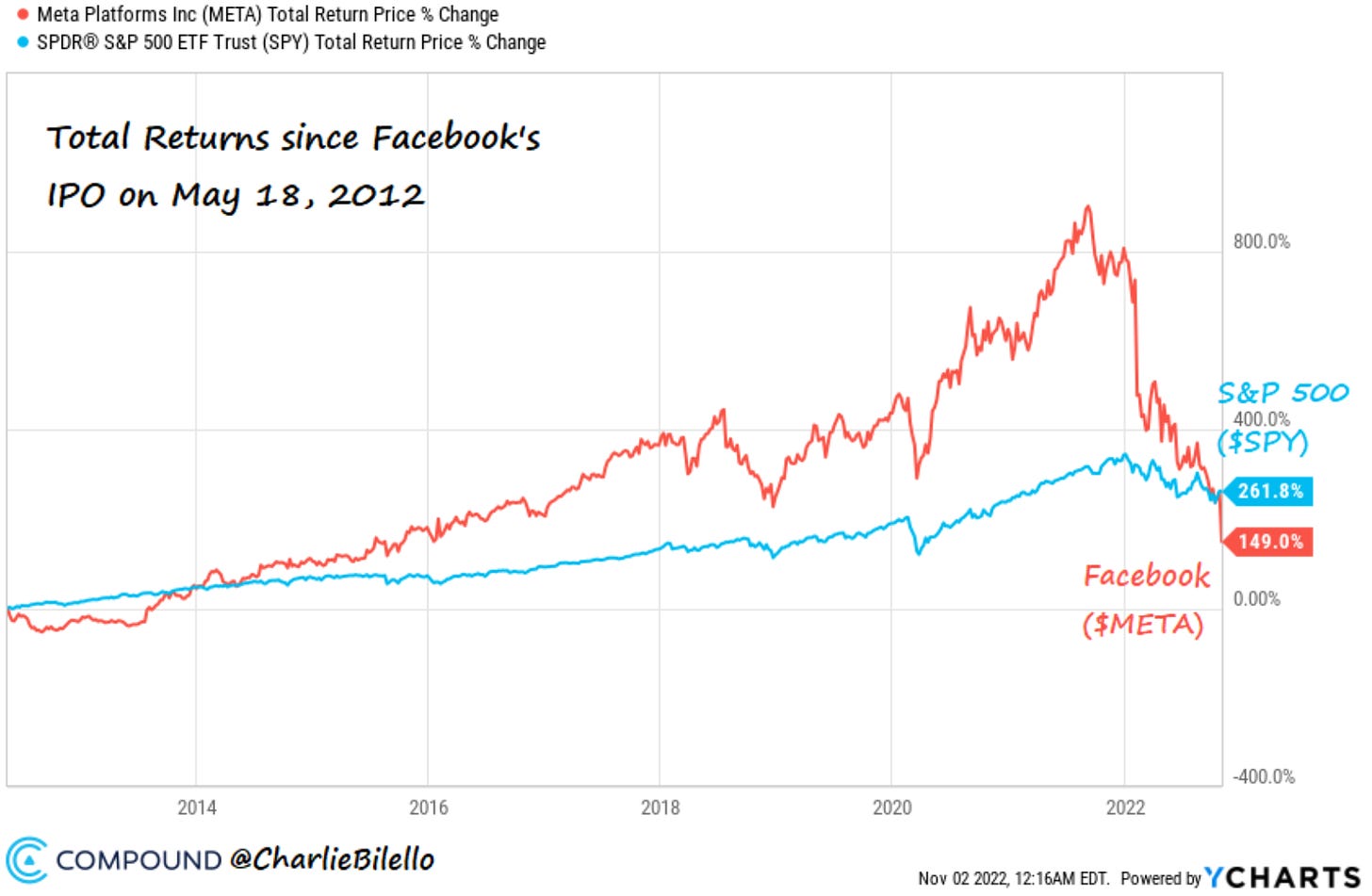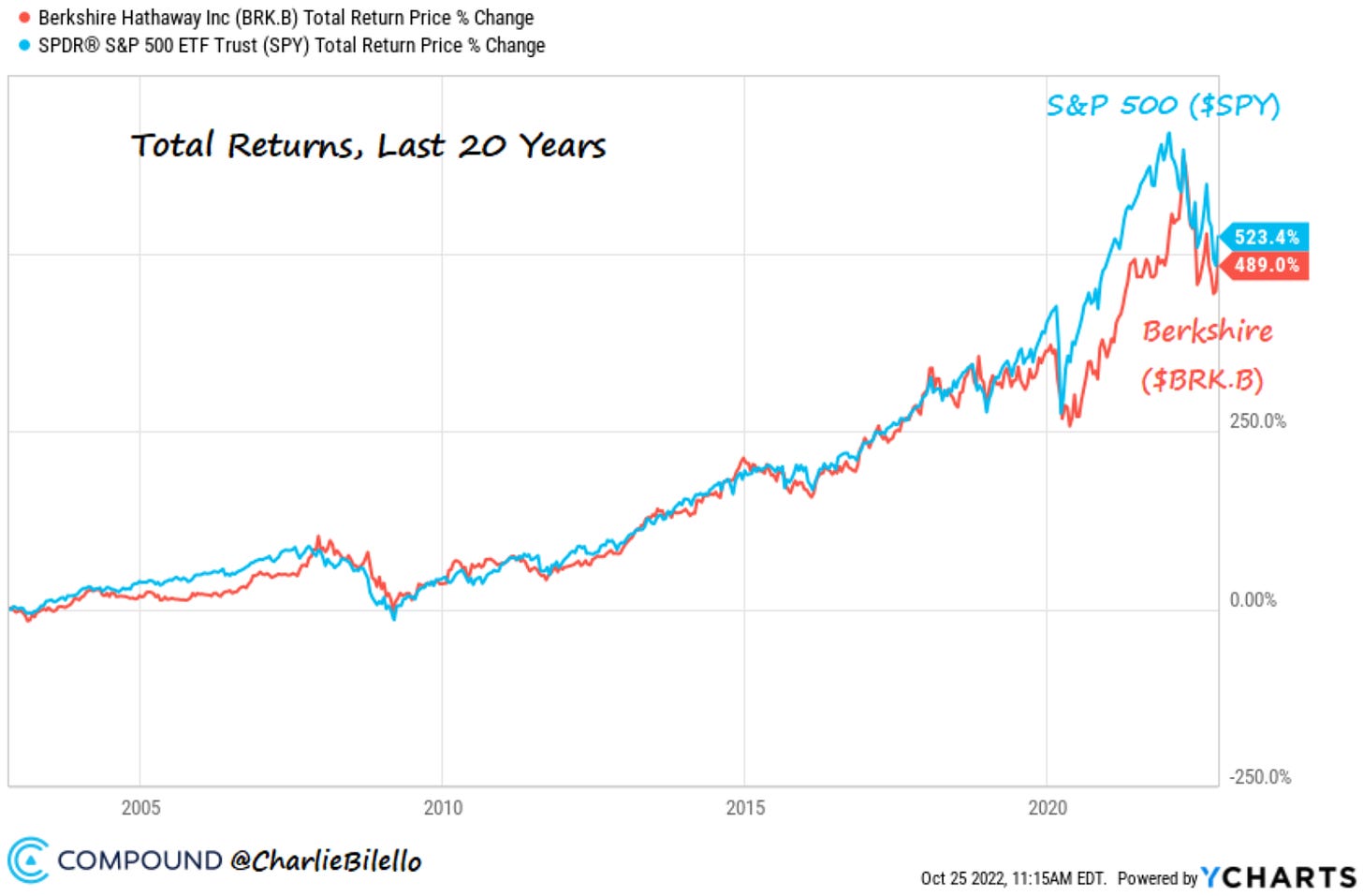Picking winning stocks seems so easy, until it isn’t. For the past few years you could pick almost any stock and it went up. The more widely known and popular the company was, the better their stock performance was.
In 2022 that has changed. Some of the most popular, well known and best run companies in the world stock prices are going in the other direction. So far this year here is where some of those companies performances have been.
Alphabet (Google) GOOGL 0.00%↑ YTD -39%
Amazon AMZN 0.00%↑ YTD -47%
Meta (Facebook) META 0.00%↑ YTD -72%
Microsoft MSFT 0.00%↑ YTD -32%
Netflix NFLX 0.00%↑ YTD -56%
Tesla TSLA 0.00%↑ YTD -52%
Many seem to forget that stock picking is very hard. There are both peaks and valleys. Some became accustomed to experiencing only peaks. It isn’t always up and to the right. It’s challenging because nobody knows what the future holds. I wrote about this in a past post, You Don’t Know, I Don’t Know, Nobody Knows.
History shows us just how hard it is to pick winning stocks and for those stocks or the professional money managers to consistently beat the S&P 500. Beating the S&P 500 is the benchmark.
Amazon’s IPO was in May of 1997. One of the best, important and used companies in the world today, one would think they should be among the best performing stocks. In one of the more fascinating long-term stock charts, which compares Amazon and Monster Beverage. Since 1997 Amazon has been outperformed by Monster Beverage by almost 3x. Monster sells energy drinks.

How about Facebook (Now Meta). Their IPO was in May of 2012. When it came public Facebook was the most talked about and popular company in the world. Since its IPO, Facebook is up 149%. That trails the S&P 500 return of 262%. You would have made far more money by investing in the S&P 500 than you would have investing in Facebook the day it became a public company. Who would have thought that?

What about Warren Buffett’s Berkshire Hathaway. Over the past 20 years Berkshire Hathaway has returned 489%. That also trails the S&P 500 which has returned 523%. Another statistic most people wouldn’t have realized.

Even the world’s greatest investor Warren Buffett fails to beat the S&P 500 consistently over the long term. Here were Buffett’s thoughts on trying to pick individuals stocks from his 2013 Annual Letter to shareholders.
Most investors, of course, have not made the study of business prospects a priority in their lives. If wise, they will conclude that they do not know enough about specific businesses to predict their future earning power.
I have good news for these non-professionals: The typical investor doesn’t need this skill. In aggregate, American business has done wonderfully over time and will continue to do so (though, most assuredly, in unpredictable fits and starts). In the 20th Century, the Dow Jones Industrials index advanced from 66 to 11,497, paying a rising stream of dividends to boot. The 21st Century will witness further gains, almost certain to be substantial. The goal of the non-professional should not be to pick winners – neither he nor his “helpers” can do that – but should rather be to own a cross-section of businesses that in aggregate are bound to do well. A low-cost S&P 500 index fund will achieve this goal.
That’s why upon his death he has given the following instructions for his remaining wealth, also from his 2013 Annual Letter to shareholders.
My money, I should add, is where my mouth is: What I advise here is essentially identical to certain instructions I’ve laid out in my will. One bequest provides that cash will be delivered to a trustee for my wife’s benefit. (I have to use cash for individual bequests, because all of my Berkshire shares will be fully distributed to certain philanthropic organizations over the ten years following the closing of my estate.) My advice to the trustee could not be more simple: Put 10% of the cash in short-term government bonds and 90% in a very low-cost S&P 500 index fund. (I suggest Vanguard’s.) I believe the trust’s long-term results from this policy will be superior to those attained by most investors – whether pension funds, institutions or individuals – who employ high-fee managers.
Why should you, I or any individual investor buy individual stocks? 90-year-old Princeton professor Burton Malkiel who wrote one of the best investing books of all-time, A Random Walk Down Wall Street couldn’t have said it any better in his recent interview in the WSJ.
I’ve always liked gambling; it’s fun. So yes, I buy individual stocks. Do I think that I am making a bigger rate of return than through index funds? I’ve never calculated it, but probably not. Will I continue to do it? Absolutely. Because it’s fun! And I read Barron’s and plow through The Wall Street Journal every day, because I enjoy it.
And I do all this knowing that it’s not very risky for me because I have a good strong retirement fund from my time at Princeton and my service on corporate boards, and that money is 100% indexed. As long as your core retirement portfolio is indexed, you can play around on the margins without much harm.
In the past I’ve tried both day trading and gambling with penny stocks. I still own stocks that I bought over ten years ago. While owning index funds all along the way. Investing is all a learning process. You learn and get smarter by doing. You can have fun, be boring or be both with whatever your investment plan is. After all it’s your money.
The Coffee Table ☕
The All-In Podcast Episode 103 from this past weekend is a must listen for anyone who is in charge of leading or owns a company. These four were spot on last year as they forecasted the current environment that we’ve been in. They took a deep dive into where things are headed and it made for an extremely interesting conversation.
Derek Thompson of the Athletic wrote a spot on post entitled What Moneyball Has Done to American Culture. He talks about why he no longer watches baseball and how moneyball analytics has changed so much in sports and entertainment.
Thank you for reading! If you enjoyed Spilled Coffee, please subscribe and/or give a gift subscription for others.
Spilled Coffee grows through word of mouth. Please consider sharing this post with someone who might appreciate it.


